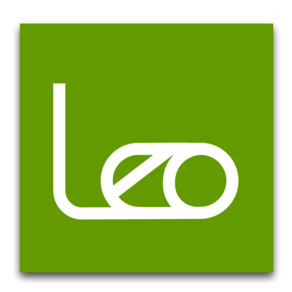Chair Profile
Prof. Dr. habil. Andreas Liening and his team deal especially with entrepreneurial topics as well as educational issues from an economic perspective under the guiding principle 'Technology & Innovation'.
On the one hand, we represent the 'Dortmund Model of Synergetic Economic Education', which we developed and which allows a comprehensive economic analysis and construction of output-oriented educational processes on the basis of complexity-scientific findings, e.g. in order to measure phase transitions in learning processes and to plan and design business education on this basis.
On the other hand, we focus scientifically on questions of entrepreneurship in the subject science. The complexity of a start-up process, from the first vague idea to the young growing company, can be theoretically substantiated and empirically investigated with the help of our innovative methods from an individual as well as an entrepreneurial and economic perspective within the framework of a specially developed synergetic overall model. In doing so, the application of the empirical methods contributes to making visible for the first time the non-linear, partly eruptive phase transitions and learning processes associated with start-up projects on all three levels, and to placing targeted measures for the promotion of self-organization and self-employment in a supportive manner ('nudging'). The international visibility is ensured by the associated 'Centre of Complexity Sciences and Entrepreneurship Education' (CCSEE).
The target groups we address are diverse: In recent years, we have consistently expanded our educational offerings for future teachers of vocational education (Berufskollegs) and general education (Gymnasien/Gesamtschulen). In addition, our courses also address those target groups who require an economic and, in particular, entrepreneurial education, but who do not have a degree in Economics. Thus, selected events such as our 'Summer School' are aimed at students of all faculties of the TU who want to work in management positions of private or state institutions or intend to found their own companies.
The manifold cooperations, e.g. with the technology center close to the university, the business development of the city or the IHK Dortmund, as well as the international exchange (e.g. Gambrinus-Fellowship for renowned international professors) are characteristics of a research-oriented and practice-relevant teaching of the chair.
Research focus
The research activities of the chair are divided into the three main areas of Economic Education as well as Entrepreneurship and Complexity Research.
With respect to the field of Economic Education, the entire spectrum of computer-supported learning and teaching is the focus of the research activities. In particular, the design and implementation of authentic learning arrangements are of great relevance. For example, research is conducted on how traditional economic didactic instruments can be combined with business games or case studies under modern ICT. The aim is always to generate added value in Economic Education. The focus of Entrepreneurship Research is on Entrepreneurship Education and business start-ups. But also in the area of Social Entrepreneurship research is conducted at the chair and in particular the topic of Social Franchising is investigated. Complexity Research essentially refers to the application and further development of the theory of "complex systems". The focus is on the description, explanation and modeling of non-linear phenomena in economic fields, for example in economic simulations. In this context, the potentials of "new media" are also integrated.
Teaching
A special concern in the teaching of the Chair of Entrepreneurship and Economic Education is the acquisition of a broad theoretical foundation with a simultaneously high application orientation. The teaching we offer is structured in two parts. On the one hand, the focus of our teaching is on science. The second focus is on the training of teachers with the subject "Economics". The subject-related teaching focuses on the teaching of start-up skills. Strategic planning is as much a part of the teaching program as the development of business plans. Within the didactic teaching of Economics, the four didactic areas "contents", "objectives", "methods" and "media" are addressed in particular. In addition to the skills of knowledge transfer, the focus is on business administration. Economic issues, however, are also taught.




